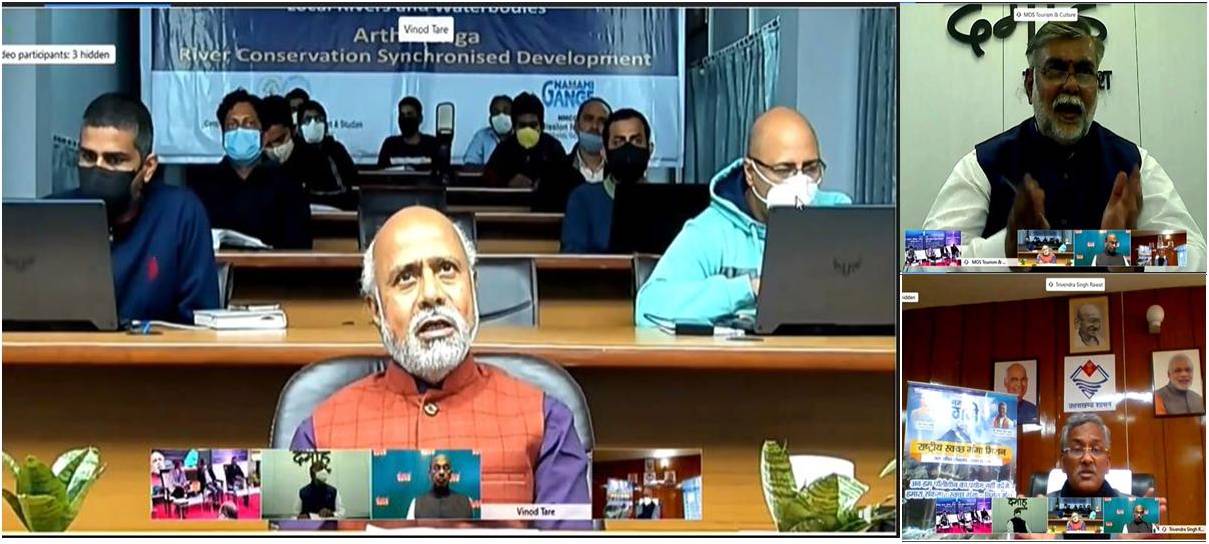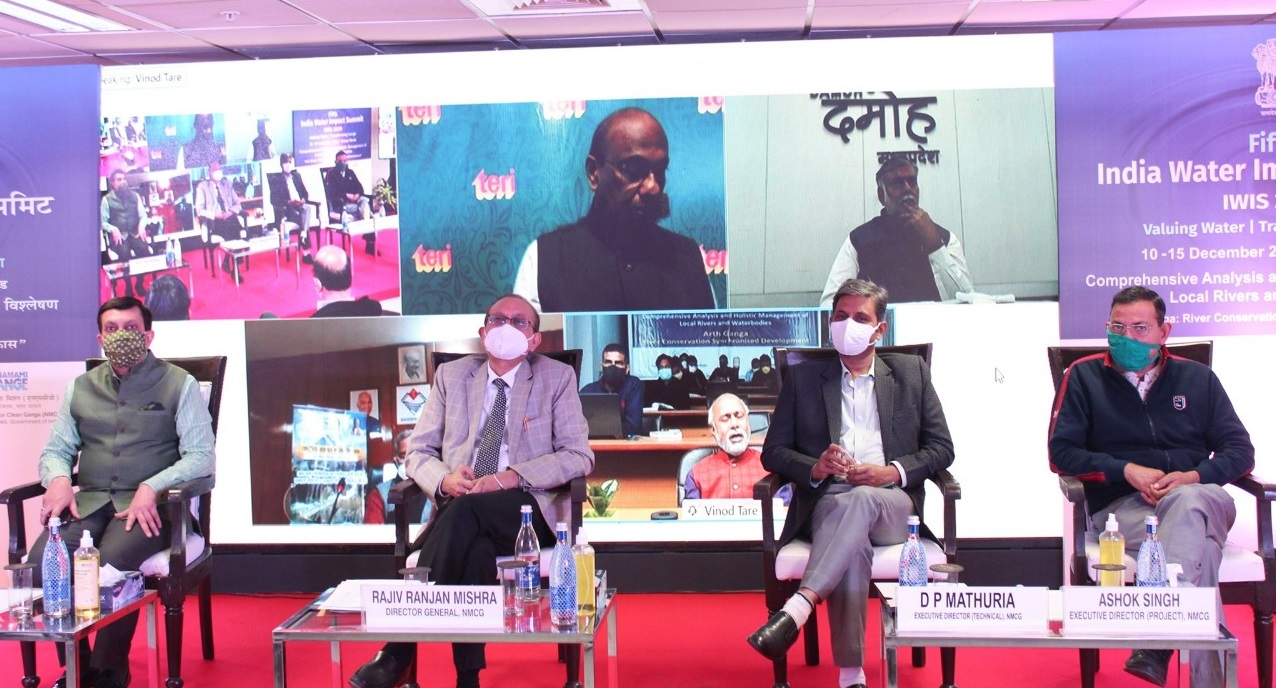Today’s Plenary Theme: “River Conservation Synchronised Energy and Tourism”
The 5th India Water Impact Summit (IWIS) organized jointly by NMCG (GoI) and cGanga (IIT Kanpur) marched through its third day with focus on Synchronising River Conservation with Energy and Tourism. Professor Vinod Tare (Founder and Head, cGanga) introduced the topic to the distinguished panellists and members, which was followed by intense discussions on how both energy generation and tourism can help develop the local economy, and how they are tied to rivers. Dr. Rajendra Bhattarai (cGnaga, IIT Kanpur) argued in favour of small reservoirs and hydropower plants in place of big dams. Shri S K Ratho (ADG (Forest), MoEF & CC) apprised the audience about the government’s forest eco-tourism programme and how it will reduce the “carbon footprint”.


In the Plenary Session of the day, Shri R.R. Mishra, (DG, NMCG), said that there has been steady progress on recovering Ganga’s “Nirmalta” and we must focus on “Aviralta” now. He also spoke about a Ganga Gallery. Shri Trivendra Singh Rawat, Chief Minister, Uttarakhand, discoursed on a thousand source streams combining to form the Ganga, and on Ganga being our national culture. He said that most of the polluted streams flowing into Ganga have been stopped, and the conservation of Ganga’s tributaries is now going on rapidly. He added that large lakes are also being constructed near rivers in Uttarakhand, from where water can be fed into rivers from time to time. The Union Minister of State for Tourism and Culture, Shri Prahlad Singh Tomar, praising rivers as God’s wonderful creation, emphasized the need to conserve all rivers along with Ganga and on changing our lifestyles for a lasting solution. Dr. Ajay Mathur (DG, TERI) argued in favour of keeping in mind local needs and conveniences as well as tourism development potential when setting up hydro-electric plants. Overall, a very fruitful dialogue between the political leadership, executive, policymakers and experts led to many new ideas and means to link river conservation beneficially with energy and tourism.
After the Plenary Session, the Summit continued its subsequent deliberations on Water Sector Finance and Innovative Environmental Technology presentations.












